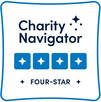|
At the beginning of the New Year, many of us make resolutions to adhere to a healthier lifestyle. Man has been aware of the connection between lifestyle and health for a long time. In Ancient Greece, Hippocrates, (460 to 375 BC) the father of Western Medicine, observed that “if we could give every individual the right amount of nourishment and exercise, not too little and not too much, we would have found the safest way to health.”
Alvise Cornaro (1466 to 1566) was asked in his eighties what his secret to having a healthy, long life was. At the time, life expectancy in Italy, where he was from and in Europe in general, was less than 40 years, with most deaths occurring in childhood. Amongst individuals who survived to 20, very few people lived past 50. Also, it was assumed that if you were one of the few to survive past 65, you would have a miserable life. In answer, he wrote a book called The Sure and Certain Method of Attaining a Long and Healthful Life. According to him, the secret was a restricted diet with a small amount of wine: “I have a desire that all men should attain my age, which is the most beautiful period of life." Cornaro gives lots of practical advice such as “When I am finished with my meal, I still feel that I could eat more. The food you decide not to eat when you already have taken your meal is more profitable than the one you already ate.” Of course, we live now in a very different world. Life expectancy is much higher (78 years in the USA in 2015!) thanks to huge advances in hygiene (clean running water, proper disposal of human and animal wastes) and immunization in childhood against many deadly diseases. However, all this progress is counterbalanced by huge changes in life style—more sedentary life than before and abundant, rich in calories, sugary and salty food, leading to an epidemic of chronic diseases such as diabetes and arterial hypertension (=high Blood Pressure) in large part related to lifestyle. So, in today’s world, what are some of the secrets to attaining a long and healthy life? Physical Activity: the best is to start early in life with an active life style. Screen time not only has a negative effect on the developing brain of the child, but it also takes away time from active playing activities. The recommendation is to limit screen time (including TV, computer, mobile phone, video games) to no more than 2 hours a day in order to give more time for the child to participate in physical activities. It is essential to find an activity the child enjoys and is appropriate for the age of the child. For adults who have been sedentary for a long time, it is best to start slowly; let’s park our car a little farther away than our destination so we can walk a little more, let’s walk upstairs instead of taking the elevator. Nowadays, people can know exactly how many steps they take in one day using monitoring devices that are now easily available on a pedometer or an app on their mobile phone. Usually, sedentary people take less than 5000 steps in one day. The goal is to slowly get up to 10, 000 steps each day by adding 1000 steps each week. 30 minutes of walking each day can make a huge difference in our lives; it improves our emotional and physical health. The CDC offers practical tips to achieve this. While little exercise is better than no exercise, intense exercise is even better as shown in recent studies in humans and animals. It is never too late to start exercising, as shown by this 105 year old cyclist. Diet: the information on a healthy diet can be confusing and we may hear conflicting advice. In addition, the food industry bombards us with advertising for their prepared foods or fast food restaurants. It is best to keep it simple. We should prepare the food we eat with ingredients we know and trust: fresh fruits and vegetables, whole grains, and proteins (from beans, lean meat or fish). We must avoid animal fat (such as lard or butter) or margarine rich in trans-fat for cooking and instead use healthy vegetable oils (such as olive oil or canola oil). It is best to share the food we prepare with family and friends, taking our time eating, staying away from distractions (TV or electronic devices) during meals. Also, remember Cornaro’s advice about moderation: “The food you decide not to eat when you already have taken your meal is more profitable than the one you already ate.” So, many of us are making a resolution for 2018 and it is often to change our lifestyle in order to improve our health. But, it is often easier to make the resolution than to keep it. What does it take to keep our resolution? We have to be SMART: Specific/Measurable/Achievable/Relevant/Time-Bound.There is a detailed description regarding this strategy in this attached article. The team at School Health Clinics of Santa Clara County wishes you a healthy and happy New Year and—of course—we are always available to help you succeed in your effort to improve your health.
0 Comments
Leave a Reply. |
Archives
March 2020
CategoriesE-newsletter Archive |
|


 RSS Feed
RSS Feed


